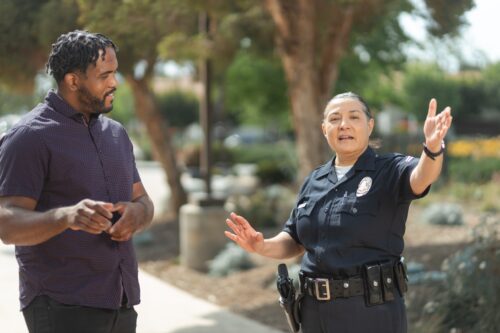
In most states, law enforcement officers will set up a field sobriety checkpoints in an attempt to catch motorists who are driving while under the influence (DUI) of illegal substances. However, this roadblock is illegal in certain states. However, in Florida, field sobriety checkpoints are completely legal. The purpose of this type of roadblock is to catch drunk drivers to increase safety on the roads. This type of roadblock can help law enforcement officers get drunk drivers off the road to ensure no accidents or injuries occur. Although this type of checkpoint is legal in Florida, motorists still have rights. A DUI is a serious criminal offense. Motorists who are charged with a DUI will face significant penalties that negatively impact a person’s life. In the unfortunate event that you have been charged with a DUI at a field sobriety checkpoint, contact a knowledgeable Pensacola DUI Defense Lawyer who can defend your rights.
How do field sobriety checkpoints work?
This type of roadblock is meant to catch motorists who are driving while impaired. However, motorists do have rights when it comes to passing through a field sobriety checkpoint. Motorists can avoid a field sobriety checkpoint, however, if they make an illegal traffic maneuver such as an illegal U-turn, they will most likely be pulled over by an officer. If an officer of the law directs a motorist to pull over and stop at a field sobriety checkpoint, the motorist must do so. At a field sobriety checkpoint, law enforcement officers will ask motorists to drive up and stop at the roadblock. All drivers are legally required to provide officers with relevant information such as their license and registration. After they’ve provided an officer with the necessary information, the law enforcement officer will begin to ask them several questions. The officer will listen to the motorist’s answers in order to determine whether they are driving while impaired. However, motorist are not required by the law to answer their questions. Although the officer, if they suspect a motorist is impaired, can request the motorist to provide a sobriety test. Motorist can decline submitting a sobriety test, however, it could make them look suspicious. It is imperative for motorist to politely and respectfully interact with the law enforcement officer manning the checkpoint. Motorists have a legal right to request to speak with an attorney before submitting a chemical test or answering any further questions. Although field sobriety checkpoints are legal in Florida, motorists still have rights that must be acknowledged.
If you have been arrested for a DUI due to a sobriety checkpoint, please don’t hesitate to reach out to our qualified and skilled team members. Our firm is dedicated to helping our clients protect their rights and interests.